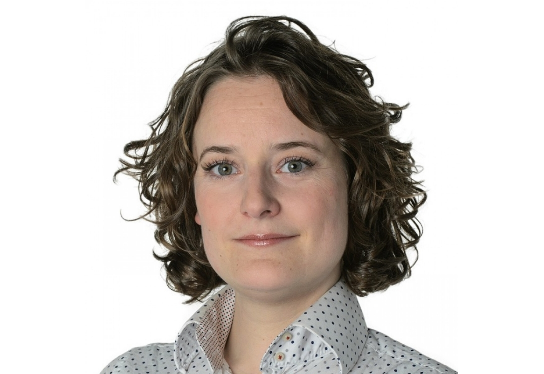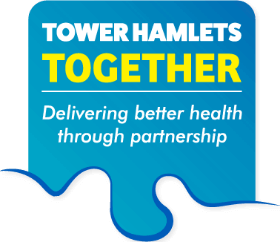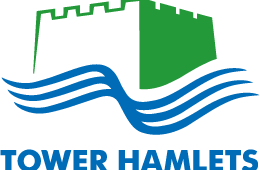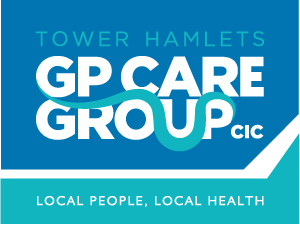Amy's Monthly Briefing - April - May 2022
The borough’s vision of a seamless health and care experience for its citizens.

I was pleased to join a site visit by Zina Etheridge, CEO of North East London Integrated Care Board (NEL ICB), where she saw innovative community partnerships including by Women’s Inclusive Team and Bromley by Bow Centre.
I’m also thrilled to have Ayaan Gulaid shadowing me as THT Chair over the next few months, who’s already brought invaluable insight and expertise to Board discussions. More broadly, the CVS are running a development programme for Black, Asian and minority ethnic leaders that includes coaching and peer support, which Board partners will be facilitating through welcoming reps to various THT forums.
April’s Board kicked off with Toyhouse presenting on their loneliness service in the pandemic. Tugela, a peer support volunteer, described her experience of being matched with a pregnant woman who self-referred in November 2019 with a history of mental health problems and adverse childhood experiences. Initially, Tugela visited her weekly at home, listening to her concerns, sharing her own parenting experiences and providing a bridge to wider services. In lockdown this became texts, calls and weekly walks when permitted - which were a lifeline for both women who couldn’t see family or access services that closed overnight. Toyhouse was also able to broker relationships with other support services. Tugela spoke movingly of the mutual benefit for both of their mental health and social connection. Being a volunteer while she was out of work was also a springboard to doing a Masters in early childhood education.
The Board were struck that this example shows the power of peer support - how a consistent relationship with one person can build trust and enable “baby steps” towards wider services and society. Board members reflected on the challenges posed by maternity care restrictions in the pandemic - for both families and services - and the need to build on peer support models like this and Maternity Mates to bake them into the system. Tugela and Toyhouse were invited to share their talk with other teams across THT to inspire similar approaches.
April’s Board also heard about the mapping of engagement infrastructure across THT, which identified an impressive breadth of groups and networks. Board members were keen to embrace the organic ‘messiness’ of varied successful mechanisms which appropriately operate in different ways and involve different people. We also want to harness and evolve successful models from the pandemic, like the Covid champions.
The Board signed off reset lifecourse workstream priorities which were developed following a rigorous process including criteria such as: delivery at place level, two or more partners involved, clear local need rooted in evidence. Promoting Independence priorities are: home care; long-term conditions management specifically for diabetes; care coordination specifically for moderate frailty and COPD; transitions for young people to adult services specifically for learning disability. Living Well priorities are: access to contraception; trauma-informed approach to care; integrating pharmacies into the system; primary care network co-production with communities, and access to health care for disabled people. We were pleased to see a very strong link throughout the priorities to our resident-led outcomes framework and to issues discussed at recent Board meetings, showing a system that has “come of age” with priorities based on local need.
Finally, we had a presentation on the mental health partnership - one of the provider collaboratives that will operate across NEL in the new ICB system - and discussed the proposed leadership model for place-based partnerships like THT. The Board were keen to understand what resources from NEL will sit underneath this model to support the transformational leadership envisaged.
May’s Board began with a presentation from Women’s Inclusive Team, the CVS and the GPCG about their Flourishing Communities project. This was rooted in women’s priorities, identified through consultation as pregnancy, sexual health and cervical screening. The project brought women and GPs together to understand barriers through workshops to both gather and provide information. They ran test and learn cervical screening sessions, with time to ask questions, access information, and have the smear test there and then if they felt comfortable. A key barrier is lack of inclusive representation in the workforce and materials, which means many women feel less welcome or “seen” by services. The women will be doing “walk throughs” of GP practices with staff to identify quick wins. Accessible information e.g. videos in Somali, Bengali and plain English on core issues like registering with a GP will also be produced.
The CVS felt that this project highlights powerfully the added value they can bring within the THT system, but that securing funding to scale up and “scale across” is vital, so we don’t lose the learning. Board members reflected on the need to value narrative stories as part of the accepted evidence that drives commissioning, as it is harder to track the direct impact of deeper interventions like this which build trust on hard data such as screening rates.
May’s Board also signed off the Children and Families Executive’s reset priorities for Born Well, Growing Well. Four have been rolled over as the work is not done and/or the need has increased - mental health and emotional wellbeing, special educational needs and disabilities, healthy weight, and partnership ways of working - along with a new priority on poverty and economic hardship. ELFT then presented on the integrated care competencies project, which has its roots in Tower Hamlets clinical practice and now needs staff across the partnership to participate, to robustly test the model.
Finally, we spent an hour on ICS development, reviewing the draft terms of reference for the new place based committee which THT will incorporate, and our updated operating framework that reflects new mandated roles being recruited: the Clinical and Care Professional Lead and Primary Care Development Lead. The Board gave a strong steer to NEL that much more ambitious citizen engagement needs to be embedded in the redesigned system now, backed with clear resources and plans. The CCG also shared the proposed transformation cycle, which indicates how accountability may be divided between the ICB, provider collaboratives, and borough partnerships - the goal is for as little as possible to be held at NEL. There’s much more to work through, which will be the focus of dedicated sessions in June and July, ahead of THT meeting as a “place based committee” for the first time in September.








